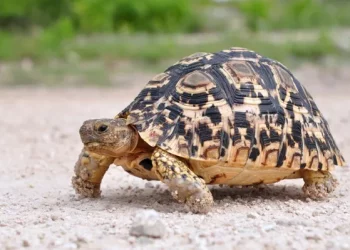Mediterranean tortoises, also known as Mediterranean spur-thighed tortoises or Greek tortoises, are beloved reptilian pets known for their gentle demeanor and fascinating behavior. Proper nutrition is essential for the health and longevity of these tortoises, which are native to regions around the Mediterranean Sea. This article explores in detail the dietary needs, preferences, and feeding practices that contribute to the well-being of Mediterranean tortoises.
Understanding Mediterranean Tortoises
Mediterranean tortoises belong to the genus Testudo and encompass several species, including the Hermann’s tortoise (Testudo hermanni), the Greek tortoise (Testudo graeca), and the Marginated tortoise (Testudo marginata). These tortoises are herbivores, meaning their diet primarily consists of plant matter, although their specific dietary requirements may vary slightly depending on the species and individual needs.
Dietary Requirements
Essential Nutrients
Mediterranean tortoises require a diet that is rich in fiber, calcium, vitamins, and minerals to support their growth, shell development, and overall health. A balanced diet ensures that these tortoises receive the necessary nutrients for metabolic functions and to maintain a strong immune system.
Variety in Diet
Offering a variety of plant species is crucial to meet the nutritional needs of Mediterranean tortoises. Different plants provide varying levels of vitamins and minerals, ensuring a well-rounded diet. Additionally, dietary variety stimulates natural foraging behaviors and prevents monotony in feeding.
Water Requirements
While Mediterranean tortoises derive much of their moisture from the plants they consume, providing access to clean water is essential for hydration. Tortoises may also benefit from occasional soaking to ensure proper hydration, especially in dry or warm climates.
Natural Diet in the Wild
Foraging Behavior
In their natural habitat, Mediterranean tortoises forage for a diverse array of plants, flowers, and occasionally fruits. Their diet varies seasonally, with tortoises consuming more succulent vegetation during periods of increased rainfall and reverting to dry, fibrous plants during drier seasons.
Wild Plant Species
Common wild plants consumed by Mediterranean tortoises include:
Grasses: Various grass species form a significant part of their diet, providing fiber and some essential nutrients.
Weeds: Edible weeds such as dandelions, plantains, and clover are readily consumed by tortoises and offer nutritional diversity.
Wildflowers: Certain wildflowers, such as violets and daisies, are also favored by tortoises and contribute to their dietary intake.
Herbs: Mediterranean herbs like thyme, sage, and oregano are natural components of their diet and provide aromatic compounds beneficial for digestion.
Feeding Mediterranean Tortoises in Captivity
Commercial Diets
Commercial tortoise diets, such as pelleted food formulated for herbivorous reptiles, can serve as a convenient option to supplement a Mediterranean tortoise’s diet. These pellets are designed to provide a balanced mix of nutrients, including calcium and vitamins, although they should not constitute the entire diet.
Fresh Greens
Leafy greens are a staple in the diet of captive Mediterranean tortoises. Offerings should include:
Dandelion Greens: High in calcium and fiber, dandelion greens are a favorite among tortoises.
Endive: This leafy green is rich in vitamins A and K, promoting healthy eyesight and bone development.
Romaine Lettuce: A good source of hydration and fiber, romaine lettuce is commonly accepted by tortoises.
Mustard Greens: High in vitamin C and beta-carotene, mustard greens support immune function and skin health.
Edible Flowers
Edible flowers not only provide nutritional benefits but also enrich the diet with natural flavors and aromas:
Hibiscus: Rich in antioxidants, hibiscus flowers are a nutritious treat for tortoises.
Rose petals: These flowers are safe for consumption and add variety to the tortoise’s diet.
Clover flowers: Clover is a common wild plant that produces edible flowers rich in fiber and minerals.
See Also: How Long Do Hawksbill Turtles Live?
Occasional Treats
While fruits should be offered sparingly due to their higher sugar content, Mediterranean tortoises may enjoy occasional treats such as:
Berries: Small amounts of berries like strawberries and raspberries can be offered as a treat.
Melons: High-water content fruits like melons can provide hydration but should be limited due to their sugar content.
Pumpkin: This squash is rich in fiber and can be fed in small amounts to add variety to the diet.
Nutritional Supplements
Calcium and Vitamin D3
Supplementation of calcium and vitamin D3 is essential for captive Mediterranean tortoises to prevent metabolic bone disease (MBD). Dusting calcium powder with D3 on food items a few times a week ensures that tortoises receive adequate calcium for shell and bone health.
Multivitamin Supplements
Periodic supplementation with a reptile-specific multivitamin ensures that Mediterranean tortoises receive essential vitamins such as A, B complex, and E, which are vital for overall health and metabolic functions.
Feeding Practices and Guidelines
Frequency of Feeding
Mediterranean tortoises should be fed daily during their active seasons, typically spring through fall, when they require higher caloric intake for growth and reproduction. In winter, tortoises naturally reduce their activity levels and metabolism, requiring less frequent feeding.
Feeding Schedule
Establishing a feeding schedule helps regulate a tortoise’s diet and prevents overfeeding or underfeeding. Offer food items early in the day to allow for digestion and absorption of nutrients throughout the day.
Monitoring Food Intake
Observing a tortoise’s feeding behavior and monitoring food intake helps gauge appetite, dietary preferences, and overall health. Uneaten food items should be removed promptly to maintain cleanliness and prevent spoilage.
Conclusion
Providing a balanced and varied diet is crucial for the health and well-being of Mediterranean tortoises, whether they are kept as pets or observed in their natural habitats. By understanding their dietary requirements and preferences, tortoise owners can ensure that these fascinating reptiles thrive and enjoy a fulfilling life. Whether foraging in the wild or receiving care in captivity, Mediterranean tortoises rely on a diet rich in fiber, vitamins, and minerals to support their unique physiology and longevity.
By implementing proper feeding practices, offering nutritional supplements as needed, and monitoring dietary intake, tortoise enthusiasts can contribute to the conservation and welfare of these iconic reptiles for generations to come. Understanding and respecting their dietary needs is a fundamental aspect of responsible tortoise ownership and conservation efforts worldwide.
Related Topics:


























